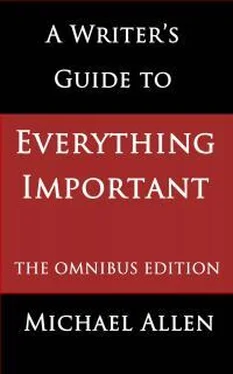At the time of writing I am 74 years old. I was first paid for writing an article in a weekly magazine in 1955. My first novel was published in 1963, exactly 50 years ago this year; since then I have written at least 25 others (under my own name and several pen names). My first radio play was broadcast in the same year.
I have written about ten non-fiction books, most of them intended to be of help to writers; and, in related fields, I have written various drama scripts that have been professionally produced on the stage, radio, and television.
For about 25 years I was a director of two small publishing companies, and hence saw something of the book world from a publisher’s perspective as well as an author’s.
In 2007 I was honoured to be invited to serve as one of the panel of three judges for the UK Romantic Novelists’ Association award of Romantic Novel of the Year.
As of today I have about 60 separate publications available in Kindle format, under various names. See the Afterword to this book for links to my author pages on Amazon sites.
I am an Englishman, and most of my experience has been in UK publishing; many of the examples that I give will therefore be from an English context (though the rest of the world doesn’t behave any differently). All spelling follows English conventions: colour instead of color, for example.
My principal career was in education; as a result, my instinct is always to pass on useful information. That’s why I’ve taken the trouble to write this book.
PART 2: SUCCESS – The three principal elements
2.1 A foot in the door?
If you have been thinking and reading about being a writer for more than five minutes, you will know that getting published at all, through the traditional publishing industry, is not an easy process. In fact, for many writers it proves to be impossible.
For a full discussion of just how difficult a process it is, please see Chapter 2 of my Kindle ebook The Truth about Writing. All I will say here is that if you monitor some of the key book blogs in this world, you will soon come across examples of writers who have laboured for years to find an agent, and have waited for more years for said agent to find them a publisher. If ever.
Here I’m going to tell you just one story, because the lady in question wrote to me personally and thanked me for showing her a way forward in one of my books.
The lady concerned is Beverly C. Gray, and if you search on Amazon you’ll find that there is only one writer of that name (always a useful asset). She is now the author of a series of six novels with the overall title Black Knights of the Hudson .
Beverly’s search for publication began decades ago, and needless to say did not go smoothly. In the 1980s, when she had one book completed, an editor at a large publishing house showed an interest. But then the editor left, and the interest left with her. A year later, a smaller company signed a contract, but, after three years of ups and downs (but no published book), the company went out of business. A somewhat smaller company then offered a contract, but proceeded to expire two weeks after Beverly signed.
Meanwhile, Beverly was developing the first book into a longer series, and in 2008 an enthusiastic young agent nibbled at the bait. She gushed over the basic idea and adored Beverly’s writing style. But there was just one snag: ‘Could you rewrite the entire series from the perspective of the wives and sweethearts so that I can submit it as a historical romance which is easier to market than historical fiction?’
This tale of madness will be depressingly familiar to any writer who’s been knocking on publishers’ doors for any length of time. So, just a few years ago, Beverly C. Gray found herself needing to make a decision. She had a substantial body of completed work. This work had been repeatedly recognised as being of professional standard but had not so far found a reliable publisher. And now an agent wanted her to rewrite the whole thing! It was at that point, Beverly tells me, that she sat down and re-read my essay On the Survival of Rats in the Slush Pile . In fact, she read it several times. And having thought things through she decided to give up on traditional publishing and became her own publisher instead.
Such was the experience of one writer, and it’s a story that could be repeated several thousand times. However, in this section of this book I’m going to assume that a writer will eventually clear all the hurdles and will become that amazing creature, a Published Author! Published by a proper big-time publisher. Wow! Feels great, doesn’t it? I hope so, because your troubles have only just started.
Let us move on.
The three principal elements of success, as usually defined in a writer’s mind, are (i) money, (ii) fame, and (iii) literary reputation. Let’s take a look at them one by one.
2.2 Money
The earnings of the few
If you keep your eyes open you will regularly read press reports about writers who have been paid substantial sums of money for their latest books or scripts. Here are a few examples.
Every year Forbes magazine publishes a list of the top-earning authors in the world. The figures for 2012, published in August 2013, show E.L. James as the top earner, with an estimated $95 million (in one year). Ms James, you may recall, wrote 50 Shades of Grey.
James Patterson had to make do with $91 million, with other old hands such as Danielle Steel ($26 million) and J.K. Rowling ($19 million) trailing in as also-rans.
Even allowing for some exaggeration (and in publishing, believe me, you always need to allow for exaggeration), this is serious money.
Similarly impressive figures, even for brand-new writers, can be found every year. Back in 1977, for example, The Sunday Times reported that St Bartholomew’s Hospital in London had lost a trainee nurse. The paperback rights to Colleen McCullough’s second novel, The Thorn Birds , had just been sold for £1,117,000. The book had taken her eight weeks to write. Miss McCullough promptly resigned from her nursing post and became a full-time writer.
Twenty years or so after Colleen McCullough, we find that another young lady was doing something similar. Jenn Crowell was aged 17 when she wrote her debut novel, Necessary Madness . In 1997 Hodder and Stoughton paid her £500,000 pounds, just for the British rights. The American rights were bought separately.
Other novelists who received massive advance payments for novels in the late twentieth century include Douglas Adams, Michael Cordy, Robert Mawson, and Michael Hoeye.
Finally in this review of financial success stories, let me tell you a story about a man who made a lot of money as a writer without ever becoming well known. Some thirty-plus years ago, a schoolteacher friend of mine decided to co-operate with two colleagues in writing a series of textbooks, designed for use in secondary schools. After putting forward some proposals, the three men were offered a contract by a major publisher, but they weren’t quite convinced that there was any real money in the job.
To set their minds at rest, the publisher sent them to see his star author, a man who wrote books for foreign students who wanted to learn English.
One of the first questions that the three visitors asked this author was about the money he made.
‘Oh yes,’ said the unknown author, ‘writing textbooks does pay quite well.’
To prove the point, he showed them his income-tax bill for the previous half-year (and remember that this was more than thirty years ago). He was paying , in a half-year, over £100,000 pounds in tax. His pre-tax income was enormous.
Читать дальше












